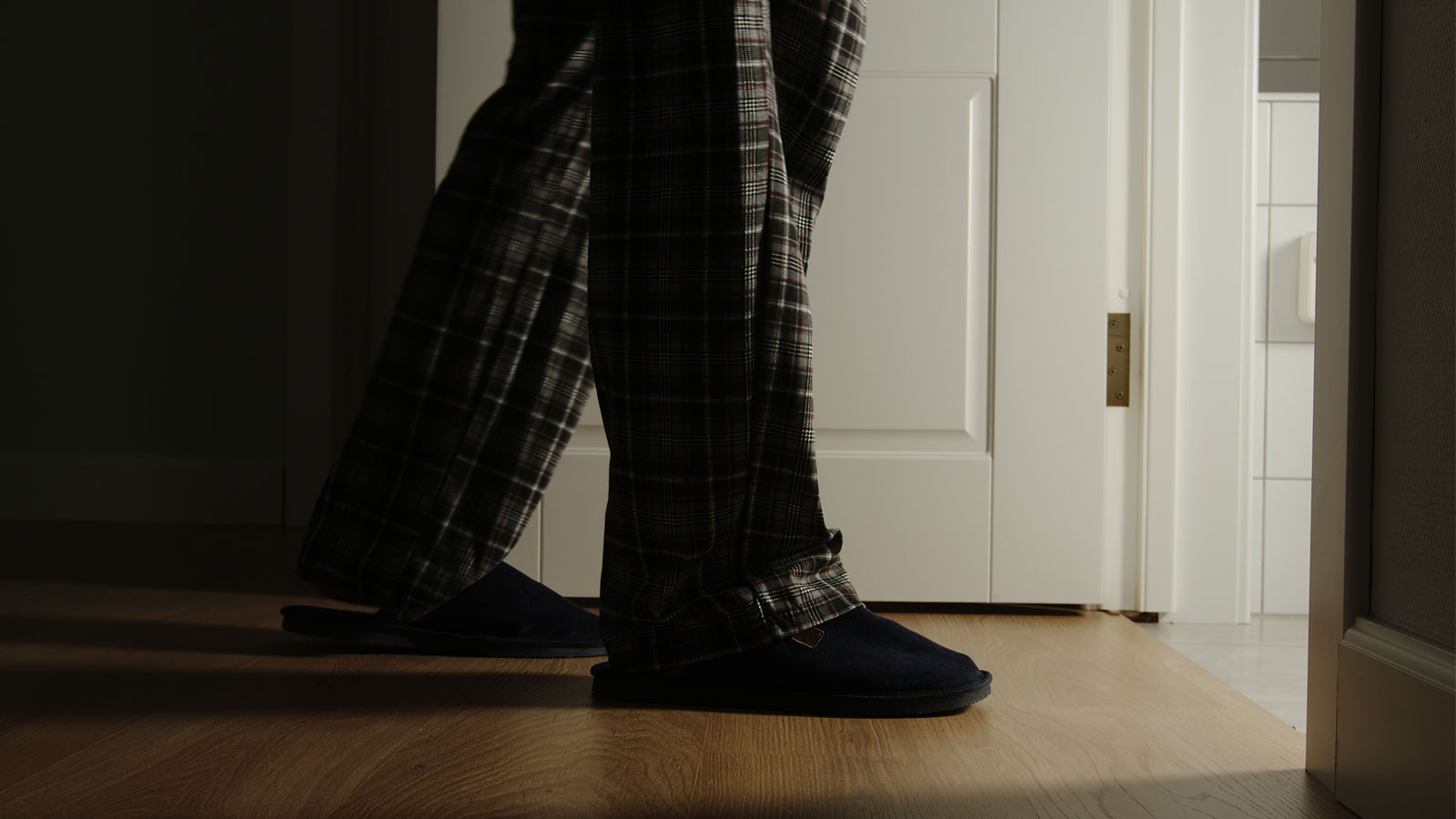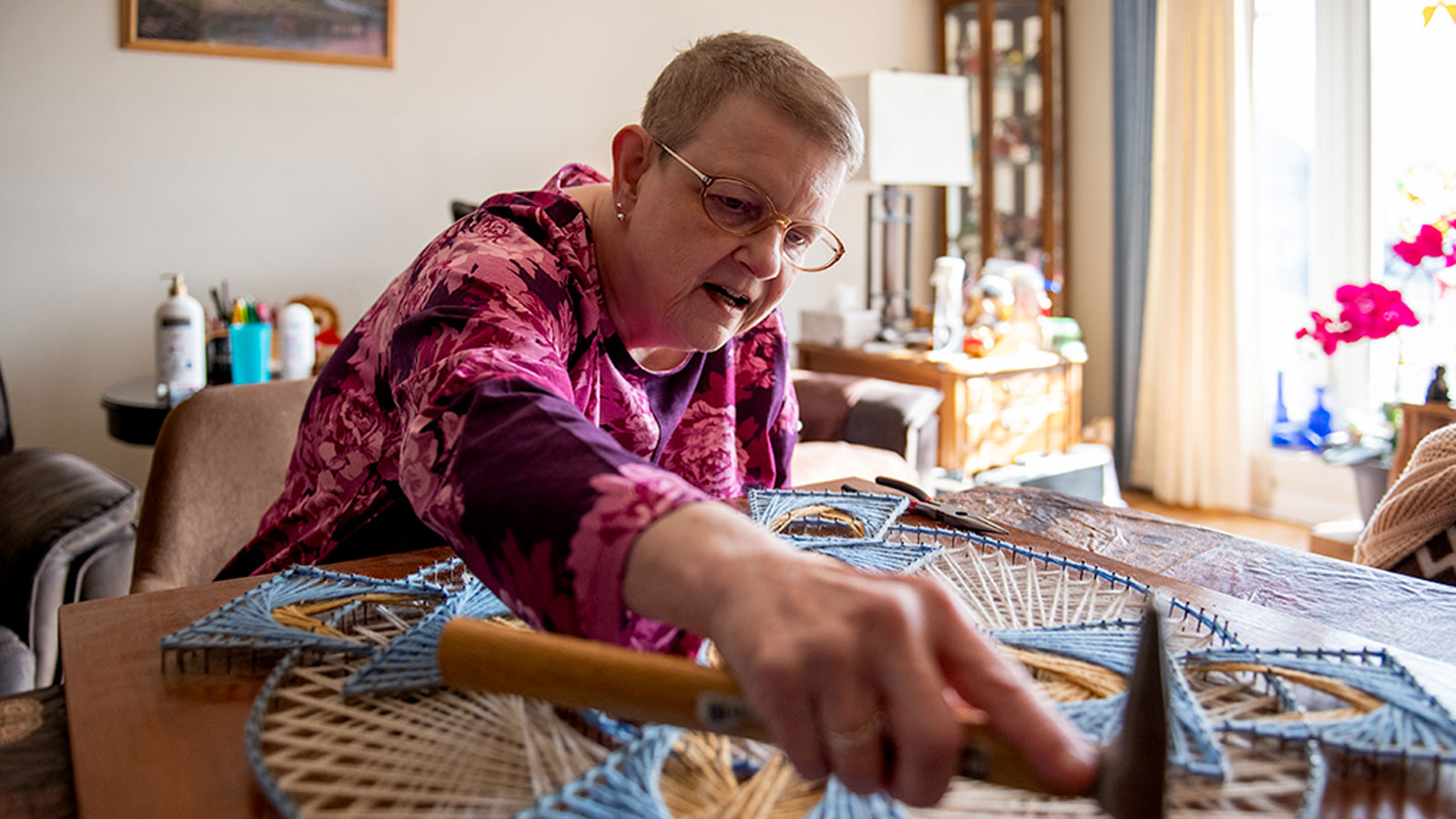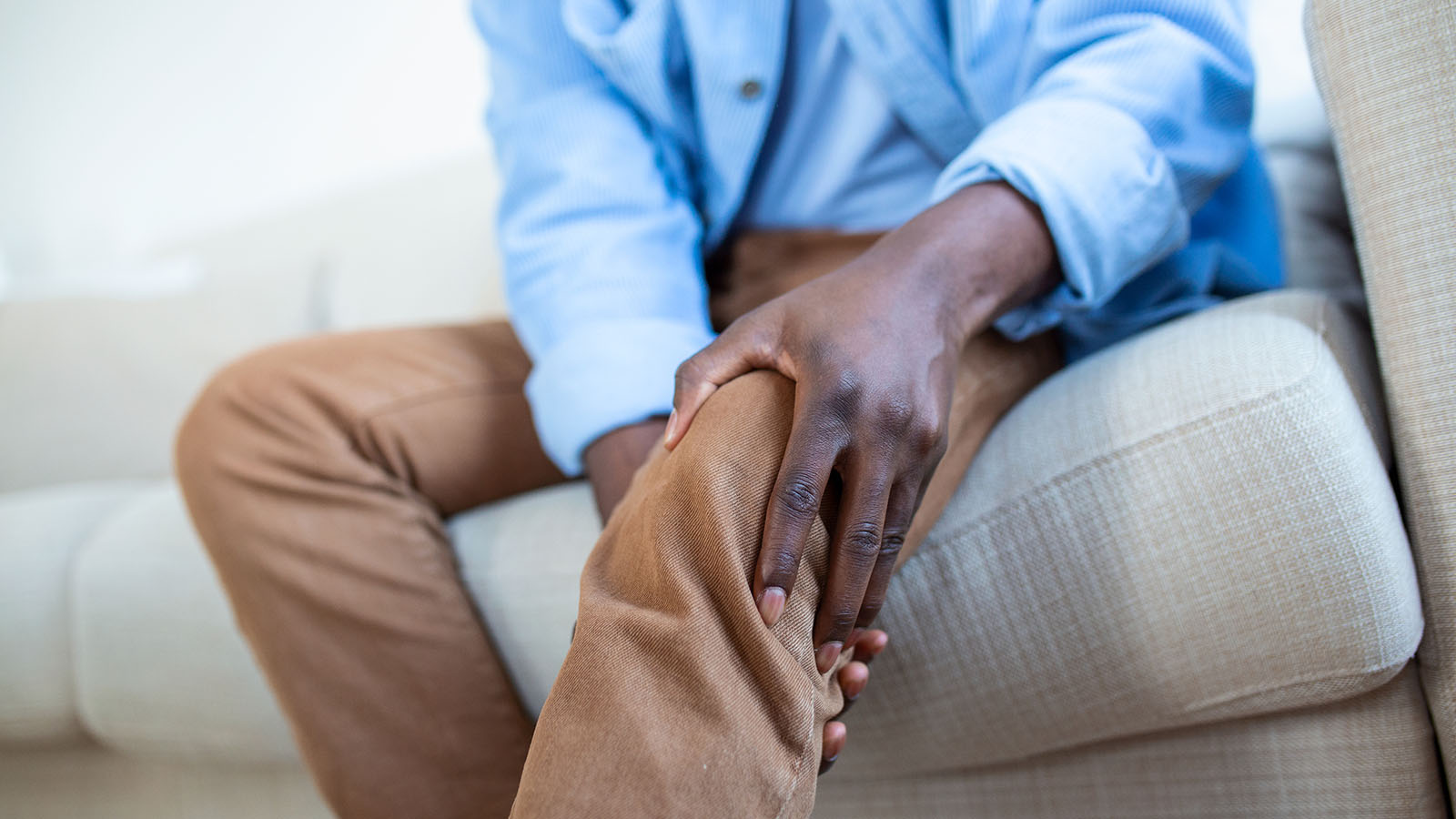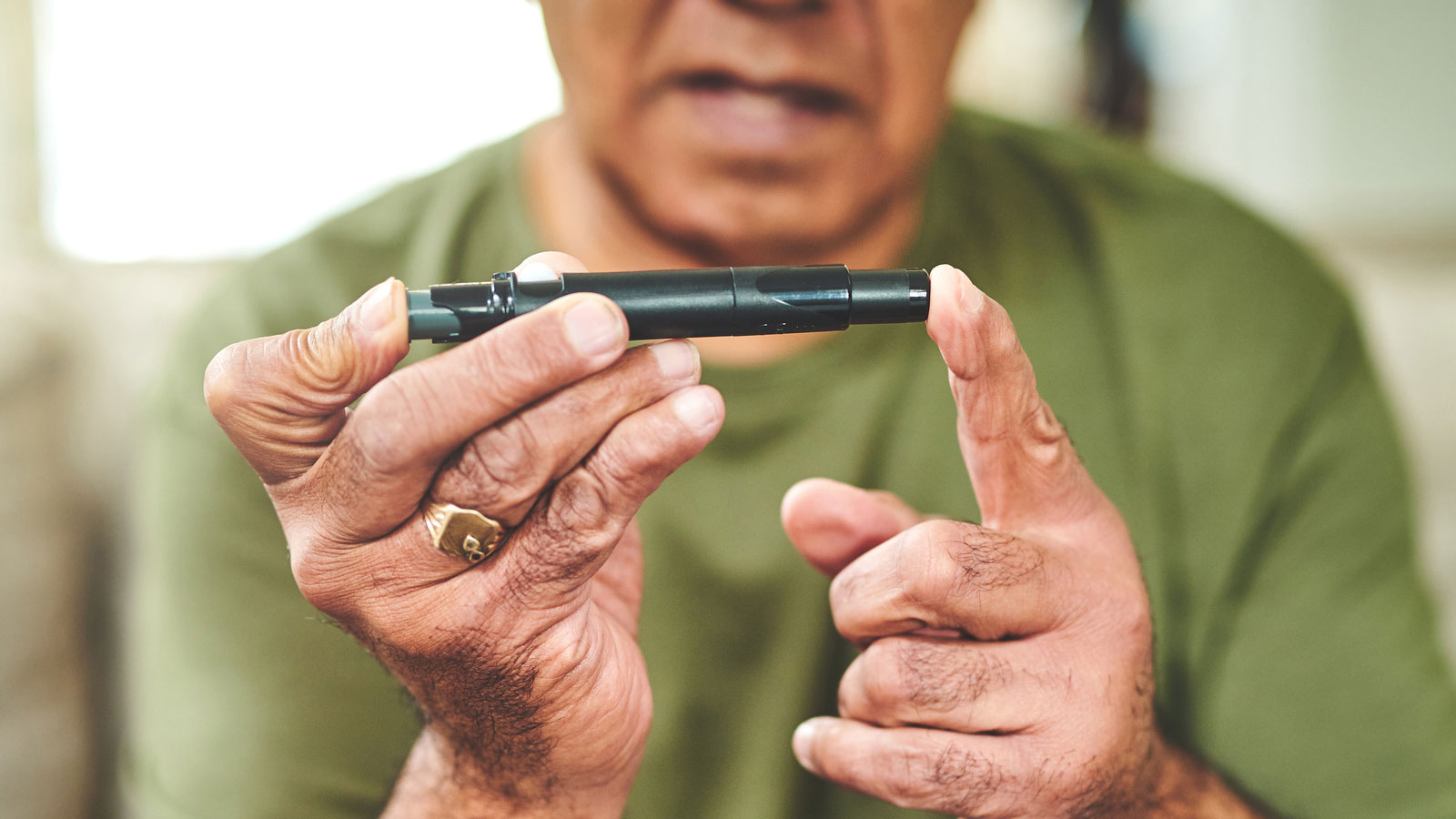Is My Back Pain Normal, or Is It Sciatica?
Do you just have a pulled muscle, or are you suffering from sciatica? Anokhi Mehta, MD, Virtua Pain Medicine Specialist, explores some frequently asked questions related to the condition, and what you can do about it.

By Anokhi Mehta, MD, Virtua Pain Medicine Specialist, Pain Management
You didn’t think you’d have a problem helping your high school buddy move out of his apartment. Sure, that sofa was heavy, but it was only two flights of stairs. Now, the pain shooting down the back of your right leg is making you think otherwise.
You may have a type of back condition called sciatica, an irritation of a nerve that runs down your leg. Our bodies have nerves that branch out from the lower back through the hips and buttocks down both legs. The pain can happen anywhere along the path of the nerve—which can make it difficult to diagnose.
What causes sciatica?
Sciatica commonly occurs when a herniated or degenerative disk, bone spur on the spine, or narrowing of the spinal canal (spinal stenosis) compresses part of a nerve—resulting in inflammation, pain, and numbness.
These conditions can be caused by:
- Overuse of your back, such as lifting something that is too heavy
- An injury from a fall, or having something hit your back
- Excess body weight increases stress on the spine, which can contribute to bone spurs and herniated disks
- A sedentary lifestyle or a job that forces you to sit for long hours
- Always keeping an item in your back pocket, like a thick wallet, when you sit
- Diabetes, which increases the risk of nerve damage
If you’ve ever experienced a flare-up of sciatica, you know it differs from other types of back pain. Instead of a throbbing in one place, it can range from a mild ache to a sharp, shooting pain, or a burning sensation to an electric shock. Aside from pain, some people develop numbness, tingling, or weakness in a leg or foot, or multiple symptoms in different parts of the leg. Typically, though, people only experience symptoms on one side of their body.
When should I see a doctor?
Seek immediate medical treatment if you experience:
- Sudden, severe pain in your lower back or leg, and numbness or muscle weakness
- Pain following an injury, such as a traffic accident or sports incident
- Trouble controlling your bowels or bladder, or numbness in that area
The good news is that mild sciatica usually dissipates over time with conservative management such as pain relievers, alternating heat and ice, avoiding lifting or bending, and physical therapy.
Consult your primary care physician if your pain lasts more than a week or two, or if it becomes severe or progressively worse.
How can I keep my sciatica from coming back?
To reduce your chances of flare-ups, I recommend:
- Lose weight if you are overweight.
- Do warm-up stretches before participating in activities.
- Do regular aerobic exercises to strengthen your back and abdominal muscles.
- Lift properly, bending your knees and hips and keeping your back straight.
- Practice good posture.
Download the Virtua Health Guide to Back Pain or call 856-246-4272 to request a consultation with one of our back pain specialists.
There's So Much More to Explore
Discover expert insights, inspiring stories, health tips, and more by exploring the content below!

At-Home Colon Cancer Tests vs. Colonoscopy: Which Screening Option Is Right for You?

8 Signs It's Time to See a Gastroenterologist

How the Unique Stages of a Woman's Heart Affect Her Health

8 Stretching and Balancing Exercises for Older Adults

How Weight-Loss Surgery Can Improve Diabetes, Heart Health, and More

Knee Replacement Rehab: 7 Exercises to Restore Your Strength and Range of Motion

COPD vs. Asthma: Understanding the Difference in Symptoms

Bioidentical Hormone Replacement Therapy Pellets: Relief for Menopause and Andropause Symptoms

Why Is Sex Painful During Pregnancy? Pelvic Congestion Syndrome Explained

Don't Drink Alcohol? You Could Still Get Fatty Liver Disease

What Is the Difference Between Palliative Care and Hospice Care?

How to Exercise Safely with Asthma: Tips, Triggers, and Rescue Inhaler Use

How to Relieve Bloating Fast: Simple Tips for Quick Comfort

How to Tell the Difference Between Cold, Flu, and COVID-19

Jill Travels From Delaware to South Jersey for Advanced Lung Care

4 Exercise Tips to Help You Reverse High Blood Pressure

From Exhaustion to Empowerment: Tracy's Hormone Replacement Therapy Success Story

Why on Earth Am I Always So Cold?

Timely Heart Care During a Heart Attack Helps Joe Feed the Community

Allegra Is Thriving With Crohn's Disease

The Best and Worst Foods for Acid Reflux

How to Manage IBS Symptoms and Feel in Control Again

5 Types of Lung Disease: Symptoms, Causes, and Prevention Tips

Foods to Enjoy and Avoid for GLP-1 Heartburn

3 Reasons Why Now's the Time to Find Relief From Varicose Veins

Baseball Coach Turns Male Breast Cancer Surprise into Personal Mission

The Brain Health Checklist: 11 Questions Everyone Should Ask

From Caregiver to Patient: Robotic Surgery Relieves Teresa's Knee Pain

How to Get and Stay Healthy This Fall

How to Reverse Prediabetes and Prevent Type 2 Diabetes

6 Ways to Get More Out of Your Daily Walk

Young Breast-Cancer Survivor Has New Hope for Healthy Future

Is Cancer Hereditary? What You Need to Know About Your Genetic Risks

Tara's Story: From Debilitating Uterine Fibroid Pain to a Half-Marathon Medal

Is Your Post-Pregnancy Belly Bulge a Sign of Diastasis Recti?

Prevent Yard Work Injuries: Tips for Mowing, Gardening, and Raking

Is Your Daily Walk Making You Really Sore?

IBS and Alcohol: Can You Still Enjoy a Drink?

Focus on Mental Health Is Key Part of Andrew's Weight-Loss Journey

What You Need to Know About Epilepsy

'Feeling Joy Again': ECT Brain Stimulation Therapy Restores Ashley's Well-Being

Not Just for Wrinkles: Botox Injections Promote Improved Bladder Control

5 Best Biking Trails In South Jersey

How to Stay Cool and Prevent Heat Illness All Summer Long

What Happens to Your Body When You Don't Get Enough Sleep?

5 Key Facts About Proton Therapy for Cancer Treatment

Mood Swings vs. Mood Disorders: Know the Signs and Get Help
Are emotional ups and downs disrupting daily life? Learn common signs of mood disorders, and when to talk to a doctor about diagnosis and treatment options.

4 Foolproof Pelvic Floor Strengthening Exercises for Women

What to Expect During Perimenopause

Protect Yourself From Tick Bites and Lyme Disease

6 Tips to Tame Your Spring Allergies

Do You Know the Signs and Symptoms of Uterine Fibroids?

How Are Uterine Fibroids Treated?

How Can I Prevent Bone Loss and Osteoporosis?

How Do You Manage the Side Effects of Weight-Loss Medications?

A Woman’s Four-Step Guide to Fight Back on Back Pain

What You Need To Know About Carpal Tunnel Syndrome

The Truth About Menopause, Weight Gain, and Belly Fat

Shedding Light on Lesser-Known Menopause Symptoms and Solutions

Debunking The Myths About Vaginal Dryness
Inside Look at Blood Vessels Aids PAD Treatment
Denise Davis: Pay Attention to Your Heart Health

What You Need To Know About Stroke Treatment

10 Smart Ways to Manage Your Diabetes

Signs You May Have Chronic Kidney Disease

5 Essential Winter Foot Care Tips When You Have Diabetes

Sweet Music: Trust, Teamwork Save Justin from Heart Attack

Complex Heart Surgery Nets James a Lifelong Friend

Hepatitis C Kidney Transplant a Blessing For Lee Manns

7 Reasons Why You Want Your Surgeon to Be an Expert in Robotics

Colitis Symptoms Under Control, Jennifer Is ‘Living My Best Life’

How Do I Care for a Wound that Won't Heal?

Five Back Pain Risk Factors That You Should Know

Is My Back Pain Normal, or Is It Spinal Stenosis?

Augmented-Reality Surgery Has Bobby Back on Stage, Rocking His New Hip

Robotic Hernia Surgery Combines Innovative Techniques With Faster Recovery Times

5 Back Stretches for the Work-From-Home Workweek

How Does Breast Density Affect Your Mammogram?

Menopause: New Insights Into the Power of Hormone Replacement Therapy

Signs You Should Get Treated For Vein Problems

One New Heart Valve Saves Two Lives in the Tritten Family

What You Need to Know About Heart Failure
Lung Valve Surgery Relieves COPD, Emphysema Symptoms

4 Easy Ways to Treat and Prevent Runner's Knee

Lung Screening, Robotic Technologies Get Pat Kicking Up Her Boots Again

Breast Cancer Diagnosis Inspires Catherine to Help Others

Jasmine’s On-Air and Pain-Free After Gallbladder Surgery

When Should I See a Doctor About My Knee Pain?

Quick Action Leads to Jesse's Recovery From Stroke

A Non-Athlete’s Guide to Shoulder Overuse Injuries
Shoulder problems aren’t limited to athletes. Virtua orthopedic surgeon Sean McMillan, DO, explains shoulder overuse injuries and prevention in this article.

Put Lower Back Pain Behind You With This Ten-Step Guide

Wide-Awake Hand Surgery Speeds Recovery, Puts Control in Patients' Hands

South Jersey Veteran Thrives After Cross-Country Kidney Donation
Working from Home? Take a Quick Break to Stretch Your Wrists

3 Ways to Avoid Knee Pain

When Should I See a Doctor for My Hip Pain?

When Should I See a Doctor About My Shoulder Pain?

Is My Back Pain Normal, or Is It Sciatica?

Is My Back Pain Normal, or Is It a Herniated Disk?

When Is It Back Pain, and When Is It Something More?

Watchman Heart Device: a Technological Breakthrough for Blood Clot Prevention

Albert's Emergency Cardiac Surgery Is a 'Story of a Lifetime'

What Can I Do Right Now About My Aching Back?

How Do I Get Rid of This Back Pain for Good?

Can Your Gut Health Affect Your Heart?

When Should I Be Worried About My Neck Pain?
Advanced Heart Failure Therapies Get Bernadine Back to Full Speed

Sarah Wins Back Her Health After Crohn's Disease Diagnosis

Overcoming Addiction, Philip Now Sees More Positive Side to Life
Firefighter's Successful Lung Cancer Care at Virtua
A Lung Screening Put Teresa Back in the Race

A Breast Self-Exam Saved Kristen's Life

Early Treatment is Best to Relieve Hemorrhoid Symptoms

The Top 10 Foods For A Healthy Diabetes Diet

Keeping the Beat: Advanced Heart Surgery for Aortic Aneurysm

Are You At Risk For Chronic Kidney Disease

Local Pastor Makes Kidney Health Mission of Ministry

What’s the Difference Between Type 1 and Type 2 Diabetes?

All for Bear: Dan Loses Weight to Be His Son’s Kidney Donor

Hyperbaric Wound Therapy Puts Joette Back in Motion

Robotic Hernia Repair Renews David's Active Lifestyle

